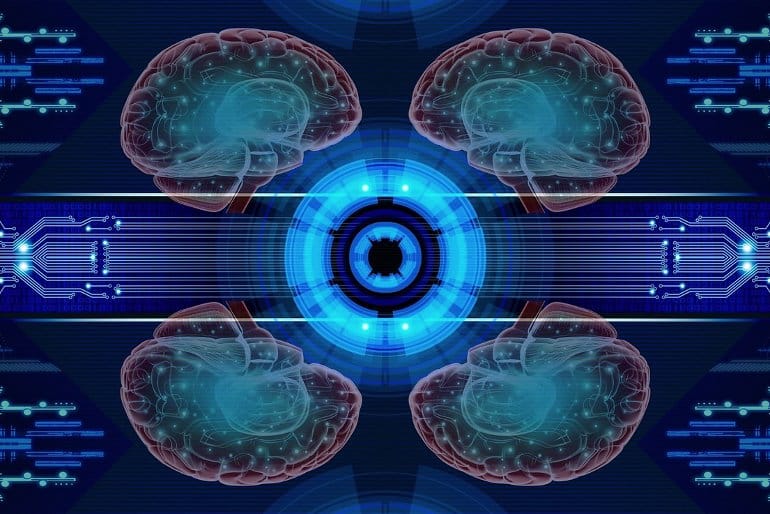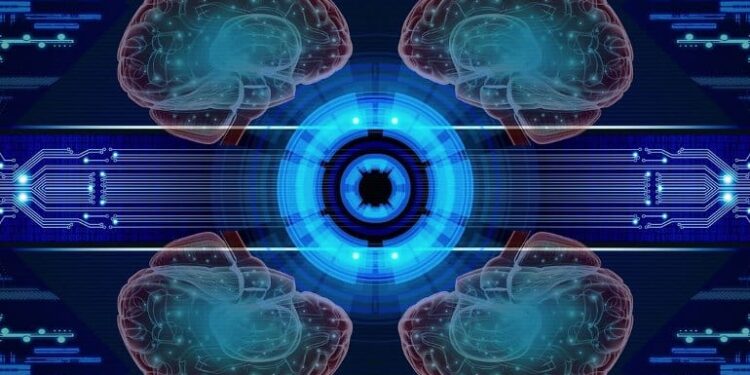Summary: “Off-line” durations throughout AI coaching mitigated “catastrophic forgetting” in synthetic neural networks, mimicking the educational advantages sleep gives within the human mind.
Source: UCSD
Depending on age, people want 7 to 13 hours of sleep per 24 hours. During this time, quite a bit occurs: Heart fee, respiratory and metabolism ebb and circulate; hormone ranges regulate; the physique relaxes. Not a lot within the mind.
“The brain is very busy when we sleep, repeating what we have learned during the day,” stated Maxim Bazhenov, PhD, professor of medication and a sleep researcher at University of California San Diego School of Medicine. “Sleep helps reorganize memories and presents them in the most efficient way.”
In earlier revealed work, Bazhenov and colleagues have reported how sleep builds rational reminiscence, the flexibility to recollect arbitrary or oblique associations between objects, individuals or occasions, and protects towards forgetting previous reminiscences.
Artificial neural networks leverage the structure of the human mind to enhance quite a few applied sciences and programs, from fundamental science and drugs to finance and social media. In some methods, they’ve achieved superhuman efficiency, akin to computational pace, however they fail in a single key facet: When synthetic neural networks study sequentially, new info overwrites earlier info, a phenomenon referred to as catastrophic forgetting.
“In contrast, the human brain learns continuously and incorporates new data into existing knowledge,” stated Bazhenov, “and it typically learns best when new training is interleaved with periods of sleep for memory consolidation.”
Writing within the November 18, 2022 situation of PLOS Computational Biology, senior writer Bazhenov and colleagues focus on how organic fashions could assist mitigate the specter of catastrophic forgetting in synthetic neural networks, boosting their utility throughout a spectrum of analysis pursuits.
The scientists used spiking neural networks that artificially mimic pure neural programs: Instead of knowledge being communicated constantly, it’s transmitted as discrete occasions (spikes) at sure time factors.
They discovered that when the spiking networks had been skilled on a brand new job, however with occasional off-line durations that mimicked sleep, catastrophic forgetting was mitigated. Like the human mind, stated the research authors, “sleep” for the networks allowed them to replay previous reminiscences with out explicitly utilizing previous coaching information.
Memories are represented within the human mind by patterns of synaptic weight — the energy or amplitude of a connection between two neurons.
“When we learn new information,” stated Bazhenov, “neurons fire in specific order and this increases synapses between them. During sleep, the spiking patterns learned during our awake state are repeated spontaneously. It’s called reactivation or replay.

“Synaptic plasticity, the capacity to be altered or molded, is still in place during sleep and it can further enhance synaptic weight patterns that represent the memory, helping to prevent forgetting or to enable transfer of knowledge from old to new tasks.”
When Bazhenov and colleagues utilized this strategy to synthetic neural networks, they discovered that it helped the networks keep away from catastrophic forgetting.
“It meant that these networks could learn continuously, like humans or animals. Understanding how human brain processes information during sleep can help to augment memory in human subjects. Augmenting sleep rhythms can lead to better memory.
“In other projects, we use computer models to develop optimal strategies to apply stimulation during sleep, such as auditory tones, that enhance sleep rhythms and improve learning. This may be particularly important when memory is non-optimal, such as when memory declines in aging or in some conditions like Alzheimer’s disease.”
Co-authors embrace: Ryan Golden and Jean Erik Delanois, each at UC San Diego; and Pavel Sanda, Institute of Computer Science of the Czech Academy of Sciences.
About this AI and studying analysis information
Author: Scott LaFee
Source: UCSD
Contact: Scott LaFee – UCSD
Image: The picture is within the public area
Original Research: Open entry.
“Sleep prevents catastrophic forgetting in spiking neural networks by forming a joint synaptic weight representation” by Maxim Bazhenov et al. PLOS Computational Biology
Abstract
Sleep prevents catastrophic forgetting in spiking neural networks by forming a joint synaptic weight illustration
Artificial neural networks overwrite beforehand realized duties when skilled sequentially, a phenomenon referred to as catastrophic forgetting. In distinction, the mind learns constantly, and sometimes learns finest when new coaching is interleaved with durations of sleep for reminiscence consolidation.
Here we used spiking community to check mechanisms behind catastrophic forgetting and the position of sleep in stopping it.
The community may very well be skilled to study a fancy foraging job however exhibited catastrophic forgetting when skilled sequentially on completely different duties. In synaptic weight house, new job coaching moved the synaptic weight configuration away from the manifold representing previous job resulting in forgetting.
Interleaving new job coaching with durations of off-line reactivation, mimicking organic sleep, mitigated catastrophic forgetting by constraining the community synaptic weight state to the beforehand realized manifold, whereas permitting the load configuration to converge in direction of the intersection of the manifolds representing previous and new duties.
The research reveals a potential technique of synaptic weights dynamics the mind applies throughout sleep to forestall forgetting and optimize studying.














Discussion about this post